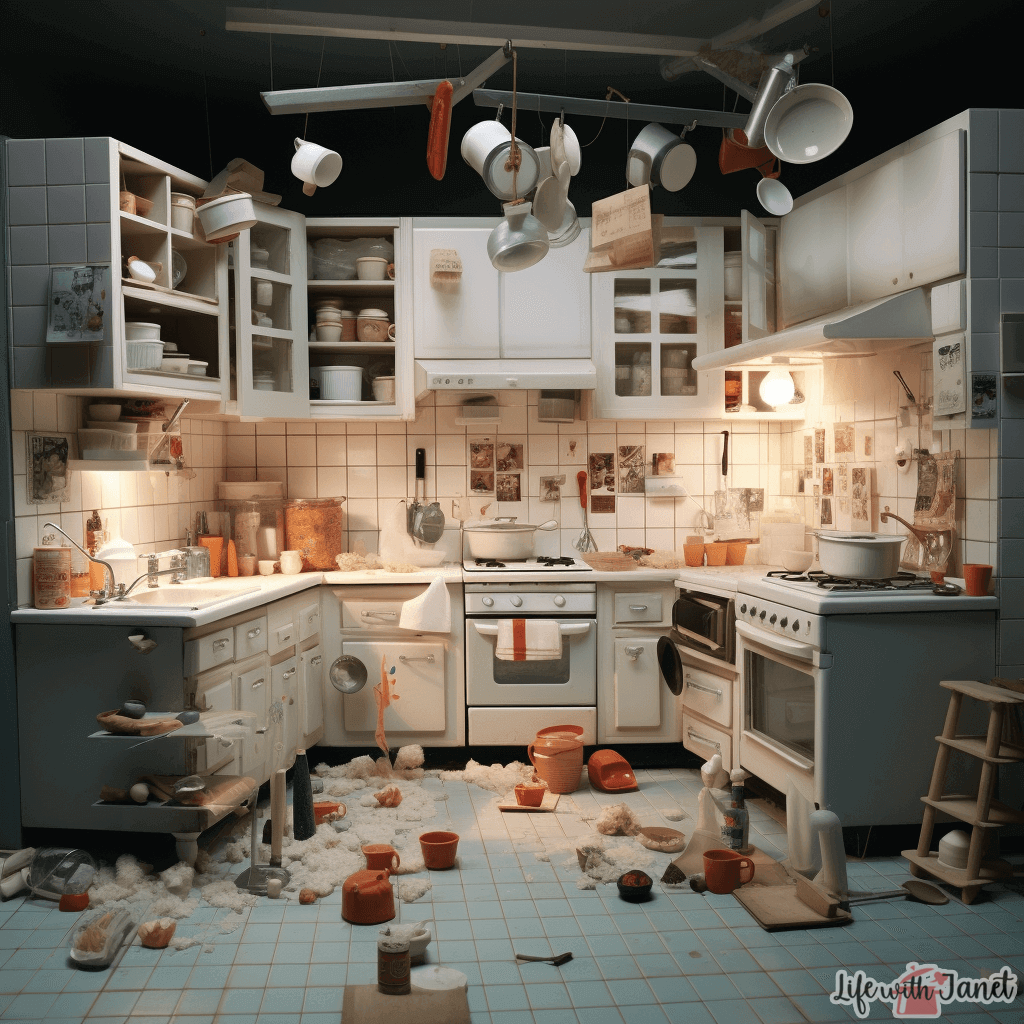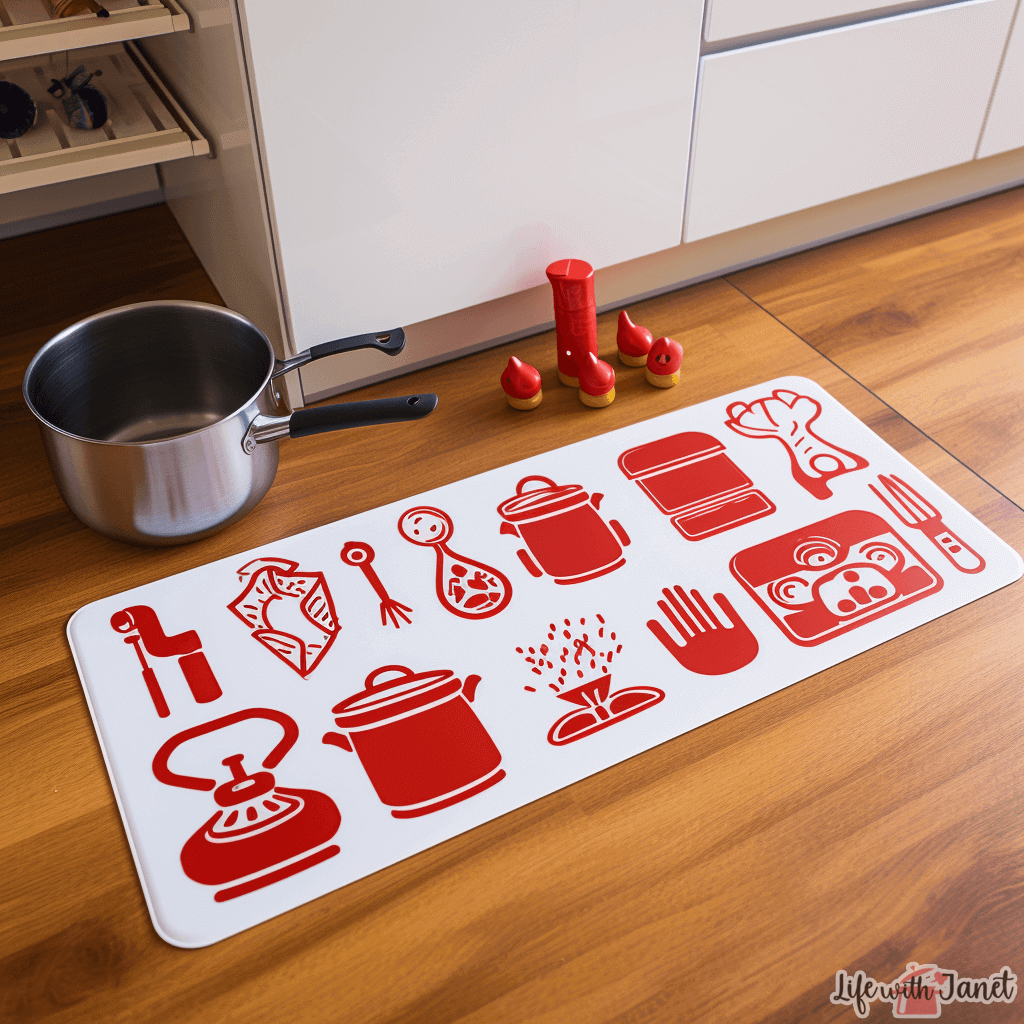Kitchens, often referred to as the heart of the home, can also be the site of many unexpected incidents. From fires to personal injuries, mishaps in this space can be both distressing and financially burdensome. Luckily, homeowners and renters insurance policies offer a safety net for these unforeseen events. Through real-life stories, we delve into common questions about when and how these insurance policies come to the rescue in times of kitchen calamities.

How does homeowners insurance cover kitchen fires?
Kitchens are notorious for being the primary source of home fires, often due to cooking mistakes or faulty appliances. Homeowners insurance typically offers coverage for damage caused by fires, but understanding the nuances is essential.
- Cause of Fire: Homeowners insurance usually covers fires resulting from cooking accidents or electrical issues. However, if the fire was due to negligence, like leaving a stove unattended, you might face challenges during the claim process.
- Property Damage: Insurance covers the cost of repairs or replacement for structural damage to the home and personal belongings. This includes cabinetry, appliances, and any other items affected by the fire.
- Additional Living Expenses: If your kitchen becomes unusable, the policy might also cover costs for temporary housing or meals out.
- Liability: If the fire spreads to a neighboring property, and you’re found liable, the liability coverage of your policy can help pay for repairs.
| Coverage Type | What It Covers |
|---|---|
| Property Damage | Repairs or replacement of structural damage and personal belongings |
| Additional Living Expenses | Costs for temporary housing or meals |
| Liability | Repairs to neighboring properties if you’re found liable |
It’s always wise to consult with your insurance provider for specific details, ensuring you have comprehensive protection against potential kitchen fires.
Can renters insurance help if my kitchen appliances cause water damage?
Water damage due to malfunctioning kitchen appliances is a common concern among renters. But the good news is that renters insurance can come to the rescue in such scenarios.
- Personal Property Protection: Renters insurance primarily covers the cost to repair or replace personal belongings damaged by unexpected water leaks, such as electronics or furniture. Note that the structure of the rented space is typically the responsibility of the landlord.
- Understanding the Cause: Coverage is usually provided for sudden and accidental water damage, like a dishwasher overflow. However, damage due to ongoing leaks or neglect might not be covered.
- Temporary Relocation: If water damage makes your rented space unlivable, the policy might cover additional living expenses during repairs.
- Liability Coverage: Should your kitchen mishap lead to water damage in another tenant’s space, the liability aspect of your insurance can cover the costs.
To fully benefit from renters insurance, regularly inspect kitchen appliances and report potential issues to the landlord promptly.
What kind of kitchen injuries are typically covered by insurance?
Kitchens, with their sharp objects and hot surfaces, are rife with potential for personal injuries. Should an accident occur, insurance can play a crucial role.
- Medical Payments: Most homeowners or renters insurance policies include a “medical payments to others” section. This means if someone gets injured in your kitchen – say they cut themselves or get burned – the policy could cover their medical bills, regardless of who’s at fault.
- Liability Coverage: If someone gets injured and believes it was due to your negligence, they might file a lawsuit. In such cases, the liability portion of your insurance can help cover legal expenses and potential settlements.
- Exclusions: Not all injuries are covered. For example, if you intentionally hurt someone, the insurance won’t cover it.
Injury prevention should always be a priority, but knowing your insurance can offer support in mishaps provides added peace of mind.
How do I file a claim after a kitchen accident?
Following a kitchen accident, the process of filing an insurance claim can be daunting. Here’s a step-by-step guide:
- Ensure Safety: Before thinking of a claim, ensure everyone’s safety. In case of fires, evacuate and call emergency services.
- Document the Damage: Take clear photos and videos of the damage. This will serve as evidence when discussing the incident with your insurance provider.
- Inform the Insurance Company: Notify your insurer as soon as possible. They will guide you on the next steps and the documentation required.
- Fill Out Claim Forms: Provide all the details about the accident. Being thorough and accurate will speed up the claim process.
- Assessment: The insurance company may send an adjuster to assess the damage and estimate the costs for repair or replacement.
- Claim Resolution: Once the assessment is complete, the insurer will offer a payout. If you disagree with the assessment, you can discuss it or seek a third-party appraisal.
Remember, communication is key. Maintain an open dialogue with your insurance provider to ensure smooth processing.
How much will my insurance payout after a kitchen disaster?
The payout after a kitchen disaster largely depends on the type of insurance policy you have and the specifics of the incident.
- Actual Cash Value vs. Replacement Cost: If you have an actual cash value policy, the insurance will reimburse you for the item’s value at the time of the loss, accounting for depreciation. Replacement cost policies, on the other hand, pay the amount required to buy a new item of similar kind and quality.
- Deductibles: Before the insurance pays out, you’ll need to pay your deductible. If the damage costs are $5,000 and your deductible is $1,000, the insurance will payout $4,000.
- Coverage Limits: Every policy has limits. If the cost to repair damages exceeds these limits, you’ll need to pay the difference out-of-pocket.
| Factor | Description |
|---|---|
| Actual Cash Value | Pays the item’s value accounting for depreciation |
| Replacement Cost | Pays the cost for a new item of similar kind and quality |
| Deductibles | Amount you pay before insurance kicks in |
| Coverage Limits | Maximum amount the insurance will pay for a particular incident |
Always review your policy details and consult with your insurance agent to understand potential payouts better.
Are there any exclusions in insurance policies for kitchen mishaps?
While homeowners and renters insurance policies can be a lifesaver when kitchen disasters strike, it’s vital to be aware that not all scenarios and damages are covered. Understanding these exclusions can help homeowners prepare better and possibly seek additional coverage if needed.
- Intentional Damage: Insurance policies will not cover damages that are caused intentionally. For example, if someone purposely sets fire to the kitchen, this will not be covered.
- Neglect and Poor Maintenance: Damages resulting from neglect or poor maintenance are typically not covered. If a leaky pipe has been ignored for months and causes water damage, the insurance might refuse the claim.
- Certain Natural Disasters: While many policies cover damage from events like fires or storms, damages from floods or earthquakes are often excluded. Homeowners in areas prone to these natural disasters should consider purchasing additional policies.
- Exceeding Policy Limits: If the cost of repairing or replacing items in your kitchen surpasses the limit set in your policy, the exceeding amount will be out-of-pocket.
- Unreported Renovations or Improvements: If you’ve made significant changes to your kitchen without informing the insurance company, they might not cover damages related to those modifications.
| Exclusion Type | Description |
|---|---|
| Intentional Damage | Damages caused on purpose |
| Neglect & Maintenance | Damages due to ignored issues or poor upkeep |
| Natural Disasters | Often excludes floods or earthquakes |
| Exceeding Policy Limits | Costs that go beyond the policy’s set limit |
| Unreported Renovations | Damages related to modifications not reported to insurer |
The best way to ensure that you’re adequately covered is to read your insurance policy thoroughly and discuss any ambiguities or concerns with your insurance provider. Regular reviews of your policy, especially after making significant changes to your home or kitchen, can also help in keeping your coverage up-to-date and avoiding potential disappointments when claiming.
In conclusion, while kitchens are central to our homes and lives, they are also places where unforeseen disasters can strike. Understanding how homeowners or renters insurance policies can come to the rescue provides peace of mind. It’s essential to be well-informed about what’s covered, the process to claim, and potential exclusions to navigate any kitchen mishap with confidence.


